Volvo V60 vs VW ID.7 - Differences and prices compared
Compare performance (455 HP vs 340 HP), boot space and price (41600 £ vs 46400 £ ) at a glance. Find out which car is the better choice for you – Volvo V60 or VW ID.7?
Costs and Efficiency:
Price and efficiency are often the first things buyers look at. Here it becomes clear which model has the long-term edge – whether at the pump, the plug, or in purchase price.
Volvo V60 has a slightly advantage in terms of price – it starts at 41600 £ , while the VW ID.7 costs 46400 £ . That’s a price difference of around 4727 £.
As for electric range, the VW ID.7 performs clearly better – achieving up to 708 km, about 616 km more than the Volvo V60.
Engine and Performance:
Under the bonnet, it becomes clear which model is tuned for sportiness and which one takes the lead when you hit the accelerator.
When it comes to engine power, the Volvo V60 has a noticeable edge – offering 455 HP compared to 340 HP. That’s roughly 115 HP more horsepower.
In acceleration from 0 to 100 km/h, the Volvo V60 is somewhat quicker – completing the sprint in 4.60 s, while the VW ID.7 takes 5.40 s. That’s about 0.80 s faster.
There’s no difference in top speed – both reach 180 km/h.
There’s also a difference in torque: Volvo V60 pulls barely noticeable stronger with 709 Nm compared to 679 Nm. That’s about 30 Nm difference.
Space and Everyday Use:
Beyond pure performance, interior space and usability matter most in daily life. This is where you see which car is more practical and versatile.
Both vehicles offer seating for 5 people.
In curb weight, Volvo V60 is noticeable lighter – 1734 kg compared to 2180 kg. The difference is around 446 kg.
In terms of boot space, the VW ID.7 offers minimal more room – 532 L compared to 519 L. That’s a difference of about 13 L.
In maximum load capacity, the VW ID.7 performs slight better – up to 1586 L, which is about 155 L more than the Volvo V60.
When it comes to payload, Volvo V60 slight takes the win – 506 kg compared to 465 kg. That’s a difference of about 41 kg.
Who wins the race?
The VW ID.7 proves to be is largely superior and therefore becomes our DriveDuel Champion!
VW ID.7 is the better all-rounder in this comparison.
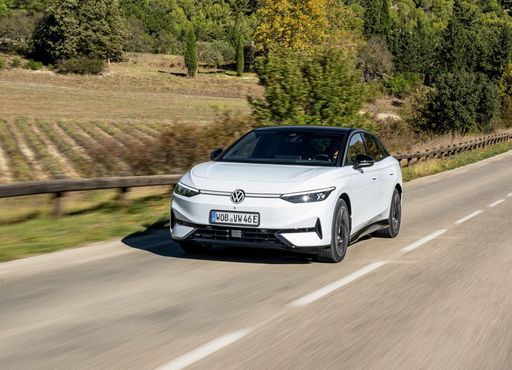
VW ID.7
Costs and Consumption
View detailed analysis
Engine and Performance
View detailed analysis
Dimensions and Body
View detailed analysis
Volvo V60
The Volvo V60 blends elegant Scandinavian design with a practical estate layout, making it a composed and sensible choice for buyers who want style without sacrifice. Inside, a serene cabin, clever safety features and a supple ride turn daily commutes and weekend getaways into effortless, grown-up motoring.
details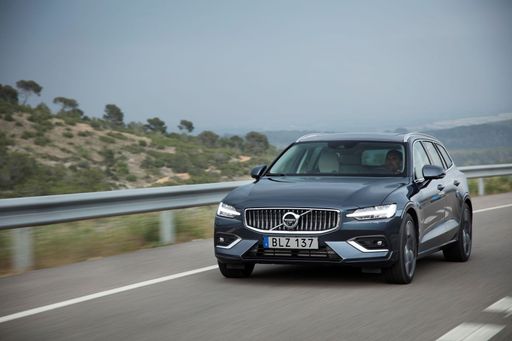
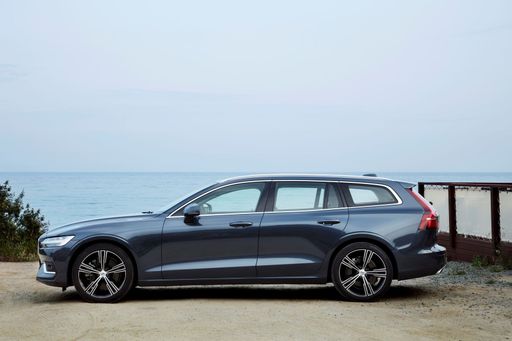
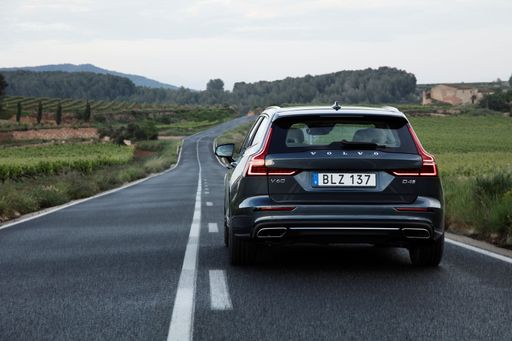
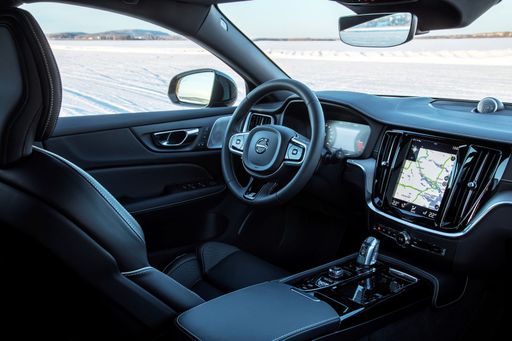
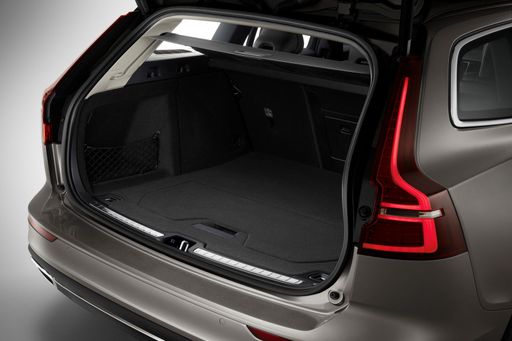
VW ID.7
VW ID.7 arrives as Volkswagen's electric grand tourer, pairing a low-slung, aerodynamic silhouette with a calm, understated interior that prioritizes comfort and space. It’s a sensible choice for buyers who want a relaxed, high-tech cruiser that covers motorway miles with poise rather than bravado.
details
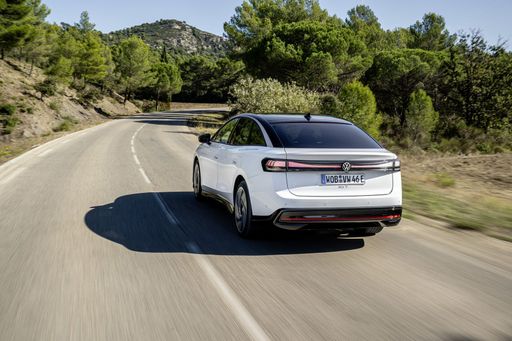
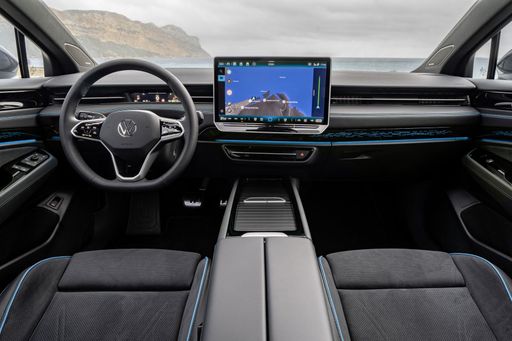
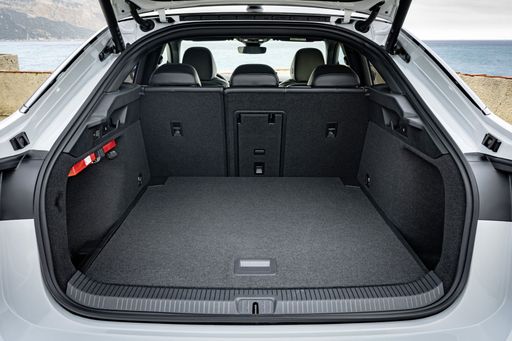
Costs and Consumption |
|
|---|---|
|
Price
41600 - 64200 £
|
Price
46400 - 54200 £
|
|
Consumption L/100km
2.4 - 6.2 L
|
Consumption L/100km
-
|
|
Consumption kWh/100km
-
|
Consumption kWh/100km
13.6 - 16.2 kWh
|
|
Electric Range
92 km
|
Electric Range
594 - 708 km
|
|
Battery Capacity
14.70 kWh
|
Battery Capacity
77 - 86 kWh
|
|
co2
54 - 140 g/km
|
co2
0 g/km
|
|
Fuel tank capacity
60 L
|
Fuel tank capacity
-
|
Dimensions and Body |
|
|---|---|
|
Body Type
Estate
|
Body Type
Hatchback
|
|
Seats
5
|
Seats
5
|
|
Doors
5
|
Doors
5
|
|
Curb weight
1734 - 2064 kg
|
Curb weight
2180 - 2325 kg
|
|
Trunk capacity
519 L
|
Trunk capacity
532 L
|
|
Length
4778 mm
|
Length
4961 mm
|
|
Width
1850 mm
|
Width
1862 mm
|
|
Height
1432 mm
|
Height
1535 - 1536 mm
|
|
Max trunk capacity
1431 L
|
Max trunk capacity
1586 L
|
|
Payload
466 - 506 kg
|
Payload
460 - 465 kg
|
Engine and Performance |
|
|---|---|
|
Engine Type
Petrol MHEV, Plugin Hybrid
|
Engine Type
Electric
|
|
Transmission
Automatic
|
Transmission
Automatic
|
|
Transmission Detail
Dual-Clutch Automatic, Automatic Gearbox
|
Transmission Detail
Reduction Gearbox
|
|
Drive Type
Front-Wheel Drive, All-Wheel Drive
|
Drive Type
Rear-Wheel Drive, All-Wheel Drive
|
|
Power HP
197 - 455 HP
|
Power HP
286 - 340 HP
|
|
Acceleration 0-100km/h
4.6 - 7.6 s
|
Acceleration 0-100km/h
5.4 - 6.6 s
|
|
Max Speed
180 km/h
|
Max Speed
180 km/h
|
|
Torque
300 - 709 Nm
|
Torque
545 - 679 Nm
|
|
Number of Cylinders
4
|
Number of Cylinders
-
|
|
Power kW
145 - 335 kW
|
Power kW
210 - 250 kW
|
|
Engine capacity
1969 cm3
|
Engine capacity
-
|
General |
|
|---|---|
|
Model Year
2024 - 2025
|
Model Year
2023 - 2024
|
|
CO2 Efficiency Class
E, B
|
CO2 Efficiency Class
A
|
|
Brand
Volvo
|
Brand
VW
|
What drive types are available for the Volvo V60?
The Volvo V60 is available as Front-Wheel Drive or All-Wheel Drive.




